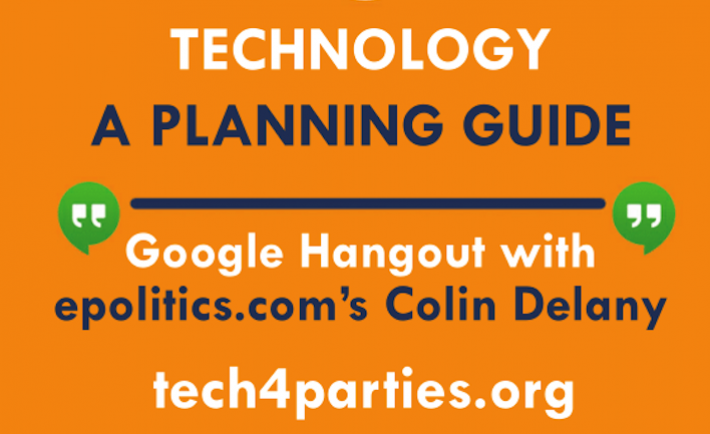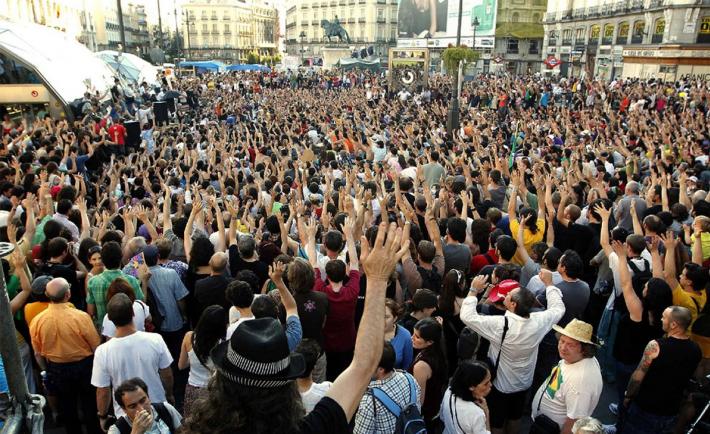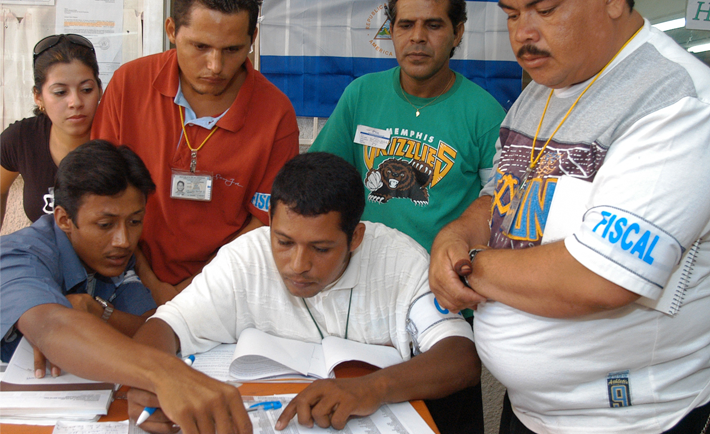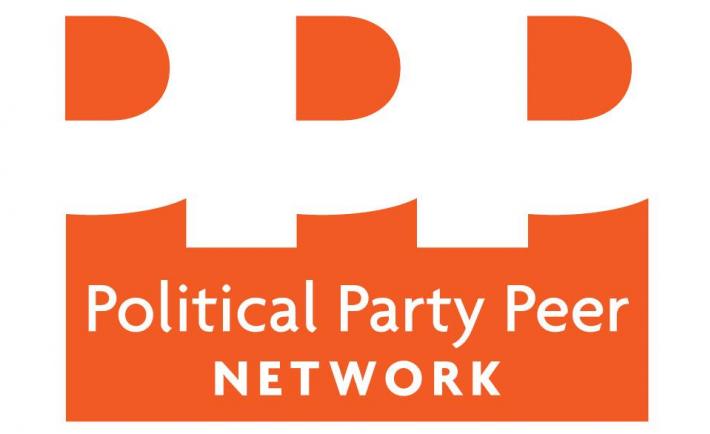Political parties are essential for democracy, they offer citizens meaningful choices and opportunities to mobilize behind different visions for their society. However, around the globe political parties are consistently ranked among the least trusted democratic institutions. While there are many reasons for this distrust, it does have some people wrongly asking if political parties are still necessary in today’s changing technological environment or if they’re a dying species of the 20th century. However, parties remain the only institutions that offer citizens meaningful choices in governance, avenues for political participation and opportunities to shape their country’s future. They therefore remain fundamental to the healthy functioning of democratic systems. To address this disconnect between citizens and political parties, NDI's Political Parties team has launched this Party Renewal Initiative to discuss how parties can better adapt to the 21st century.
Introducing NDI's Party Renewal Initiative
Colin Delany Discusses Political Parties and Tech

NDI's Politicial Parties team released a new guide to help parties taking advantage of the opportunities provided by Information Communication Technologies (ICTs).
On November 13th, the National Democratic Institute hosted an online ‘Question and Answer’ session with Colin Delany, editor and founder of epolitics.com. Delany was a lead contributor to NDI’s new tech guide, which, among other things, aims to help parties deploy new information communication technology (ICT) tools to organize and reach out to contacts, increase two-way communication with citizens, and conduct more strategic outreach.
The Next Big Step for Campaigns: Taking Mobile Canvassing Technology on the Road

A party organizer practices voter canvassing through a door-to-door exercise as part of an NDI political party training on July 29, 2015. Photo credit: Munira Aziz, NDI Afghanistan
Canvassing, an organized system of face-to-face citizen outreach, has long been used by politicians and advocacy groups to encourage constituents to vote, assess the habits and preferences of voters, and gather public opinion data. The time-honored tradition of knocking on doors remains an integral part of campaigns, though new mobile technology is starting to change the way canvassers operate on the ground.
Crowdsourcing Ideas: International Youth Day TweetTalk on Youth and Political Parties
NDI’s Citizen Participation and Political Parties teams hosted an online discussion called a TweetTalk on International Youth Day last week. Participants shared ideas and examples of how political parties can support youth political participation through the hashtag “#YouthParty” on Twitter.
Whence Popularity? The New Wave of European Populist Parties

Protesters gather in Madrid’s Puerta del Sol square as part of the 15-M anti-austerity movement. Source: Wikimedia Commons
A populist wave has crashed down upon the streets of Europe. Populist parties, old and new, left and right, have been dominating headlines in Europe over the past few years. Such parties are often led by charismatic leaders, and they claim to represent the will of the people against the elite or status quo. “The people” they appeal to are often those who feel alienated by European integration -- those who feel threatened by economic reform or lenient immigration policies.
The Road Forward: Tunisia Provides an Example for Democracy in the Middle East and North Africa
Nearly five years after protests against former authoritarian leader Zine El Abidine Ben Ali began in December 2010, Tunisia has adopted a modern constitution and, for the first time, democratically elected a new legislature and president. Tunisia has been lauded as an inspirational -- though not untroubled -- democracy within the Middle East and North Africa region. To ensure the current security concerns and economic difficulties do not encourage undemocratic intervention in the process, it is important that the U.S. government and international community continue to support the new Tunisian government as it makes difficult choices.
Transparency Could Ease Decades-Long Democratic Erosion in Nicaragua
Advances and reversals generally mark the trajectory of democratic development. But in the political history of Nicaragua over the last decade, there have been only reversals with next year’s elections likely to see the continued erosion of Nicaraguan democracy and consolidation of power by President Daniel Ortega and his Sandinista National Liberation Front (Frente Sandinista de Liberación Nacional - FSLN). But there are voices advocating for greater pluralism. Opposition political parties are small but vocal, and different elements of civil society have advocated for democratic reforms. While their efforts have not yet yielded results, the Nicaraguan government still has the opportunity to move toward greater transparency in the polls before next year's presidential elections.
Protest Parties: What Does a Pirate or Anarcho-Surrealist Do After Being Elected?

Jon Gnarr, in his official capacity as mayor of Reykjavik, Iceland. Gnarr, a sketch comedian, was elected in 2009 on satirical platform of providing free towels at public pools, a polar bear at the zoo and a drug-free parliament by 2020.
In the last decade, a proliferation of anti-establishment parties in the Euro-Atlantic region has led to increased numbers of protest candidates elected to local, national and European office. Protest parties reject mainstream politics and incumbency, opting instead for sensational campaigns that often advocate for a single issue. Pirates in the UK or anarcho-surrealists in Iceland make for interesting debates, but what happens when candidates who reject a system become part of it? Recent examples show that citizens will vote for protest candidates to highlight “elephant-in-the-room” issues, but in the long run candidates need to be able to deliver on critical issues to maintain support.
Getting the Party Started: Bringing Party Assistance Together
Political parties have a bad reputation in the eyes of many citizens, but they remain the fundamental institutions that represent citizens in democracies. Developing political party capacity has always been -- and shall continue to be -- a key component of NDI’s democracy support work. The Political Party Peer (PPPeer) Network has worked to improve collaboration and dialogue among political party assistance organizations, cultivating a global community of practice.
TweetTalk: Gender, Women & Political Parties
As part of the celebration of International Women’s Day 2015, NDI’s Political Parties and Gender, Women and Democracy teams held a crowdsourcing and networking event on Twitter called a “TweetTalk” to share ideas, best practices and lessons learned when helping to engage more women in political parties.





